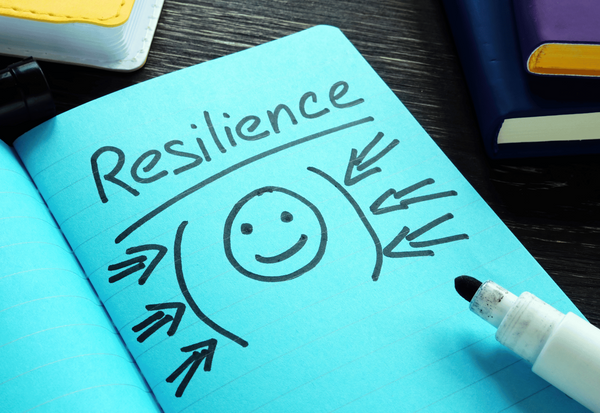The most typical thing you’d hear of when talking about Asian parents is the crazy amount of expectations they’d put on their children, right off from the moment they are born. Before they even take their first blink, the parents would have already planned out the kid’s entire life.
From the subjects he’d study, the major he’d be doing, the type of wife he’ll marry, the career he’ll have, etc. all the way until he dies.
It’s very stereotypical but with everything that’s a stereotype, there’s always an ounce of truth in there somewhere. That’s how the stereotyping starts, doesn’t it? And to be honest, I’ve seen enough of that behaviour from Asian parents to tell you that most of the time, it is true.
Personally, I was very fortunate to have Asian parents that didn’t fit that mold.
My parents never put crazy expectations on me or my siblings when we were kids. It’s not to say that there wasn’t any expectations at all because there were but it was never unrealistic. And I’m forever grateful to them for that.
I’ll tell you why.
I went to a pretty prestigious university. It was actually more expensive than my dad could afford but somehow, we managed to see me through all the way to my graduation. All it took were a student loan, a part-time job and borrowing a bit of money from my friend’s banker mom.
It was hard. It was stressful at times but I’m thankful for all the lessons it taught me, especially when it comes to appreciating something that you worked hard for.
And in a way, I’m glad that I didn’t burden my dad too much because over 75% of my student fees were covered by all that I mentioned above. And the best part of it all is that I’ve fully repaid everything so I don’t owe anyone or any institution for my studies anymore.
Back to the story.
95% of the students in my uni were from rich families. And when I say rich, I mean rich. At the age of 18, they were driving cars that most people would only be able to afford once they hit senior management level. Some were even chauffeured. I was the ONLY student there that rode a motorbike, aside from the security guards.
Kind of tells you a lot.
The reason why I was in that university though is because at that time, it was the only university that offered the course that I wanted to do and I could somewhat afford it. There was another university which offered the same course but at double the price. So I technically only had one choice.
In the beginning, I didn’t want to pursue it further because I knew it was expensive but my dad insisted I did because it was what I really wanted to study. He told me that I should just apply and if I get in, we’ll worry about the money later.
He said he didn’t want me to go for a cheaper course but one where I don’t have any interest in.
However, I met a lot of friends in my university that was in that boat. They were there studying courses that they didn’t really want to but were forced to because it was what their parents wanted them to study. Some did well, most of them flunked because it just wasn’t what they were interested in.
I knew this guy who was in his 3rd semester when I joined and after I graduated more than three years later, he was only in his 6th semester.
I went from his junior to his senior.
I later found out that he was only there because his parents wanted him out of the house. They ran a big business and he was just waiting to eventually take over from them.
If I were to rewind further back, I had classmates in high school that were taking up subjects that didn’t interest them at all. They did so purely because their parents told them to as they said it’d lead them to a bigger, brighter and better future. The amount of stress that they were under was insane. To be so stressed out in your teens isn’t the best feeling in the world.
I knew many classmates who resented their parents because of that and that resentment could easily lead to a powerful sense of hatred in the future.
But let’s rewind back even further as to why these things even happen.
Broken dreams
A lot of it stems back to the parents not being able to do what they themselves wanted to do when they were younger. Perhaps their own parents did the same things, forcing them to do things they had no interest in, putting crazy expectations on them which led them to not achieving their own dreams.
They then feel it’s their duty as parents to do the same thing to their children because they think it’s what’s best for them. If their parents did it to them, as parents, they should do it to their children.
Or it could be the other way around.
Perhaps the expectations that they’re putting on their children to do things is because they didn’t get to do those things when they were younger. Maybe they wanted to be a doctor or a lawyer but were never able to achieve that dream so they want their children to do it — to achieve their dreams through their children.
But they never once thought to stop and ask their children if they actually want the same things as them? Because most of the time, they don’t.
Which is why parents should guide their children rather than put huge expectations on them.
Here’s how you can do that.
Constant communication
Communication is so important in everything that we do. A message is found or lost depending on how good the communication is. Arguments often happen because of bad communication. Projects and deals are sealed because of good communication.
It’s important to have constant communication with your children.
My dad always knew what I enjoyed doing ever since I was a kid. He knew what I was passionate about because from young, he would constantly ask me about my likes and dislikes.
That’s why he was insistent on me pursuing my degree despite the financial obstacles that we would eventually face.
Although as parents, we feel like we know what’s best for our children, most of the time, our children know what’s best for them too. Or at least, what they want to do in life.
And if they don’t, that’s where we come in as parents, to guide them and help them find what THEY want to do, what they’re passionate about, what they’re good in — not what we want them to do.
Communication is key, it’s very important.
Planning and support
Once we know what they want to do, we need to help them plan on how to get there. What is needed to help your child achieve his or her dreams. Do you need to start a savings account for them which you’ll contribute to when they’re still young so that by the time they’re going to uni, you’d have saved up enough for their entire study duration.
How can you help them to improve further in what they like to do?
There are plenty of times when a child is interested in something but isn’t particularly good at it.
Speaking from experience, I sucked at the one sport I was totally in love with — football (or soccer for my American readers). I absolutely loved watching the beautiful game but when it came to playing, I was horrible. But I wanted to play, I wanted to play so badly.
So my dad did what a good dad would do, he supported me and he planned it well.
He took me to get my first pair of boots and a football.
Despite not being good at it at all nor had any interest in it (his favorite sport was basketball), he would help me to train. He would spend hours helping me practice so that I could get better at the basics like kicking, passing, crossing, etc., and eventually be able to play.
It worked because just a few years later at the age of 12, his son would get his first call up to represent his school and district at tournaments, go to a few finals (winning one) and eventually got called up to play for his state. This continued for the coming years where I would constantly be selected for tournaments.
My dream of being a professional footballer could have happened if it wasn’t for a career-ending knee injury that I suffered when I was 17. But that’s a story for another time.
The thing is, my dad was very supportive of what I wanted to do. He knew it wasn’t the typical choice for an Asian kid (or rather, parent) but he supported me because he knew it was my passion and it was something I loved doing.
And because of that, he passed down something that I will continue with my own sons — to allow my children the freedom to choose.
I’ve seen how things can go horribly wrong when a child is constantly forced to do something they do not want to do. It affects them on so many levels — emotionally, psychologically, mentally, and even spiritually.
It’s not good.
At the end of the day, we have to remember that we have our own lives to live. We live life according to how we want to. So why do we think it should be any different for our children?
I mean, there are certain things that we will still need to somewhat ‘force’ our children to do like learning how to read and write, despite them not wanting to because it’s a chore. We force them to eat their vegetables because we know it’s good for their health.
But when it comes to what they want to do with their lives, I truly believe that as long as it doesn’t harm others, it’s not something that’s illegal, and they can eventually make a living out of doing it, why not?
Letting them live a life that they truly want is something that as parents, we should be very supportive of.
Because I know that deep down, that is also what we want for ourselves, no?
This article was originally published at Medium. Republished with permission from the author.











Member discussion